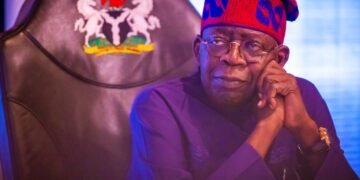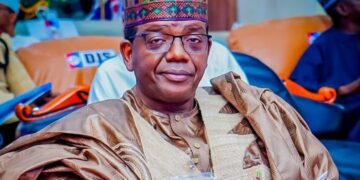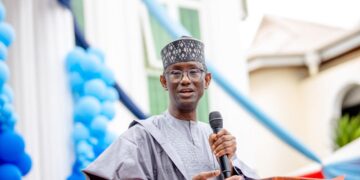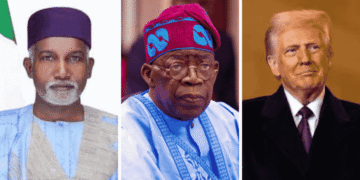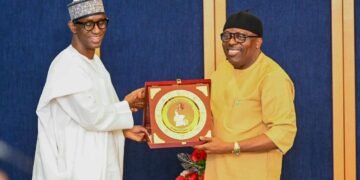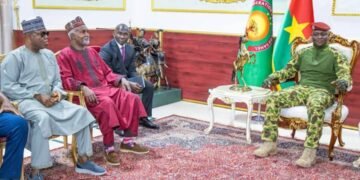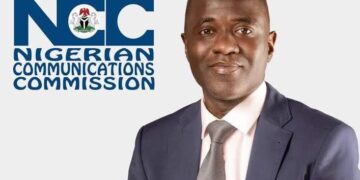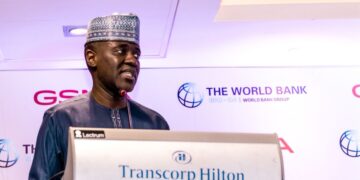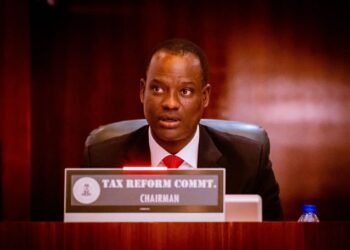By Jantiku Ijanada
The huge debt the country is owing various international bodies was about the main focus of the media in the week gone past. The media, both conventional and new, as well as vocal groups in the country seemed concerned about President Muhammadu Buhari’s new loan request of $4bn and Euro 710million.
Perhaps, calling out the President over the request is in order given the $87bn the country already owes.
However, the Presidency and the President’s media handlers and groups like the Buhari Media Organisation insist:
1. That the bulk of the outstanding debt, $64bn was incurred by previous administrations, and
2. Buhari administration’s leg of the loan- $24bn, are project specific and are being judiciously utilised.
The National Assembly seems to agree with the Presidency and the Buhari groups. The upper legislative chamber appeared to concur with President Buhari and the media handlers that the bulk of the loans were secured by previous military and civilian administrations.
Has the Senate’s position on the $87bn debt vindicated President Muhammadu Buhari and the All Progressive People’s Congress (APC) of the criticism and backlash that greeted the President’s request for the approval of the fresh loan and a grant of $125million to finance critical projects in the 2021 budget?
Having blamed the country’s economic predicament on the failure of past governments to prioritise the provision of critical infrastructure, the Senate noted that the situation has left the present administration with no other viable option than to seek external borrowing to fund capital expenditures in the national budget.
To further buttress this, the Chairman of the Senate Committee on Finance, Senator Solomon Olamilekan Adeola, was quoted during plenary to have said that majority of the loans being repaid by the Buhari administration were loans that accumulated from the times of the military to those of the PDP administration under Ex-Presidents Olusegun Obasanjo, Umaru Musa Yar’Adua and Goodluck Jonathan, between 1999 and 2015.
However, Senator Ali Ndume had earlier expressed concern over the parliament’s haste to approve the loans, while the Peoples Democratic Party (PDP) lamented that with the “reckless borrowing” by President Buhari and the APC, Nigerians might eventually not have a nation and a patrimony that they can freely call their own after the APC, which has less than two years to vacate office.
Even after APC’s explanatory statement in which it noted that: borrowings by the President Muhammadu Buhari-led Federal Government is for the good of the country as the money is used to develop critical infrastructure that is stimulating economic growth, generating jobs, reducing poverty and improving the general well-being of the citizenry; former President Olusegun Obasanjo still maintained that borrowing to accumulate debt for the next generation is criminal and if the existing debt is left unserviced or unpaid, it might become a problem for successive administrations.
Having laid the background, shall we journey back to 2015 in comparison of how things were before President Buhari came to power, and now. As of June 2015, our total debt stood at $63 billion. This was at a time when crude oil sold for as high as $110-120 per barrel.
According to the Nigeria Extractive Industries Transparency Initiative (NEITI’s) 10-year (2010-2019) report, the aggregate financial flows from the oil and gas sector to government amounted to $418.54bn, out of which $300bn was earned under the administrations of the opposition Peoples Democratic Party, while $100bn accrued over a five year period under the Buhari administration. Within the period under review, the highest revenue flow of $68.44bn was recorded in 2011 alone. This much money vanished without traceable impact on infrastructure development, and the citizenry in the period leading to, and up to 2015.
In 2010, Nigeria exported over one million barrels of crude oil per day to the United States of America, representing 9% of the U.S total crude oil and petroleum products imports and over 40% of Nigeria’s exports.
Also, the country made in excess $300bn from the sector alone during the era of the former administrations. In spite of the windfall, the last People’s Democratic Party (PDP’s) administration still took loans from local and international lenders and left behind a debt stock of $63bn.
Our current debt stands at $87bn out of which the Buhari-led administration borrowed $24bn in six years. Although 18% of the loan went to state governments, the loans collected are tied to specific projects already approved by the Federal Executive Council (FEC).
Under Buhari’s borrowing plan, Nigerians have become proud owners of legacy projects like the Abuja-Kaduna rail line; Itakpe-Warri rail project which was started 33 years ago; Lagos-Ibadan rail line, to mention but a few; while the Second Niger Bridge, Kaduna-Kano highway, Lagos-Ibadan express way, Lagos-Calabar rail line amongst others are work in progress and will soon be delivered. The loans taken are all directed towards specific projects that drive human capital growth, this is not just on paper but visible for all to see.
With so much earnings during the period leading to 2015, monies owed local contractors where running to trillions of naira and the Joint Ventures(JV) cash call arrears in the oil sector up tiil December 2015, stood at about $6.8 billion.
As against this indebtedness, a review of documents presented by national oil companies to the Federation Account Allocation Committee (FAAC) between May 2020 and May 2021, revealed that President Buhari has reduced our JV cash call from the initial $6.8 billion to a balance of about $1.464 billion. Of course, under this administration, contractors are being paid. Amazing, these payments were made at a time when the Buhari-led administration was experiencing a reduction in revenue earnings as a result of several factors, chief among which was the drop in oil prices from a range of $110-$129 to $47-$64 , and later the COVID-19 Pandemic which resulted to inflation.
Before we criticize Buhari’s borrowing plan, we should remember that he inherited more than two thirds of what is on ground today and while loans other previous administration have little or no projects to justify them, loans acquired under Buhari are judiciously used to reduce the gap in our infrastructural deficit with the view of developing the economy and improving the quality of life of the people.
Like every other loan collection under this administration, it is believed that the fresh $4.9b loan request sent to the National Assembly for approval will fully fund the 15 projects in the addendum designed to touch all the six geo-political zones.
And as the Minister of Information and Culture, Alhaji Lai Mohammed, rightly said, “the Federal Government is borrowing to build world-class infrastructure and not for recurrent expenditure. This is the difference between this administration and its predecessors”.
Ijanada writes from Abuja.

